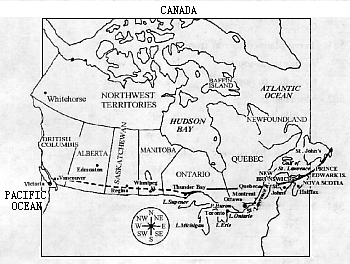题目内容
Are you nervous when you stand in front of the public? Are you afraid to make a speech?
Li Jun, a middle school boy, felt shy when he was making a speech the other day. Li had thought it would be quite easy to speak in front of1classmates.
"I was wrong. It was very different and much2than talking to my classmates during playtime," Li said. "I tried, but it was really difficult to speak. I felt like a mute (哑巴) and wanted to leave the classroom3"
Li is not alone. Many middle school students now have the same4: they can talk about their ideas freely5their best friends after class, but can't speak in public. According to Zhou Hong, a teacher from a university, the main reason is that schools in China pay more attention to writing instead of6.
Zhou hopes schools can give students more chances to open their7, such as speech competitions, English corners and class discussions. Students can join in any one they want to.8he also gives some advice to students. "During your free time you should9more. When you're speaking in public, take it easy. Just imagine you're talking to nobody and speak up your ideas clearly," Zhou said. "That 10a fine public speech and you'11 feel confident. "
- 1.
- A.her
- B.my
- C.your
- D.his
- A.
- 2.
- A.harder
- B.easier
- C.better'
- D.later
- A.
- 3.
- A.slowly
- B.quickly
- C.sadly
- D.happily
- A.
- 4.
- A.answer
- B.subject
- C.problem
- D.question
- A.
- 5.
- A.except
- B.beside
- C.from
- D.with
- A.
- 6.
- A.listening
- B.speaking
- C.reading
- D.singing
- A.
- 7.
- A.mouths
- B.eyes
- C.minds
- D.hearts
- A.
- 8.
- A.But
- B.So
- C.And
- D.Or
- A.
- 9.
- A.play
- B.practice
- C.write
- D.watch
- A.
- 10.
- A.reports
- B.keeps
- C.hears
- D.makes
- A.
DABCD BACBD
本短文属于记叙文。通过实例讲述学生们普遍存在的在公共场合讲话的不自然问题,并围绕这一现象作了分析,试图找到解决的办法。
1.主语是Li,也就是这个男孩,使用物主代词his,表示“他的”。
2.Li 认为,公众场合演讲跟平时玩时说话不一样,而且难得多。
3.在演讲时紧张地说不出话来,只想匆匆离开。
4.此处是普遍存在的问题,用problem“难题”;question是可以回答的问题。
5.使用talk with,同……交谈。
6.本文一直围绕“说”的话题。老师认为,“写”代替了“说”。
7.后面的几项都跟“说”有关,因此这里是“开口说”的意思。
8.后面句子跟前面是并列关系,补充说明,用and连接。
9.意思是“多练习”。因为只有练得多,才熟能生巧。
10.按照Zhou老师的建议来做,就会产生好的演讲。
本短文属于记叙文。通过实例讲述学生们普遍存在的在公共场合讲话的不自然问题,并围绕这一现象作了分析,试图找到解决的办法。
1.主语是Li,也就是这个男孩,使用物主代词his,表示“他的”。
2.Li 认为,公众场合演讲跟平时玩时说话不一样,而且难得多。
3.在演讲时紧张地说不出话来,只想匆匆离开。
4.此处是普遍存在的问题,用problem“难题”;question是可以回答的问题。
5.使用talk with,同……交谈。
6.本文一直围绕“说”的话题。老师认为,“写”代替了“说”。
7.后面的几项都跟“说”有关,因此这里是“开口说”的意思。
8.后面句子跟前面是并列关系,补充说明,用and连接。
9.意思是“多练习”。因为只有练得多,才熟能生巧。
10.按照Zhou老师的建议来做,就会产生好的演讲。

练习册系列答案
相关题目
| 阅读理解 | |||
| |||
| 1. How old is Xiaoxin? | |||
| A. Four. B. Five. C. Nine D. Ten. | |||
| 2. What's Mickey's QQ number? | |||
| A. 63527198. B. 62967198. C. 62967341. D. 15139748856. | |||
| 3. Who are in China now? | |||
| A. Xiaoxin and Mickey B. Xiaoxin and Panda C. Xiaoxin and Ne Zha D. Mickey and Panda | |||
| 4. The panda is from _________. | |||
| A. Japan B. China C. England D. the USA | |||
| 5. Panda means(意思是) "_________". | |||
| A. 蜡笔小新 B. 米老鼠 C. 大熊猫 |



